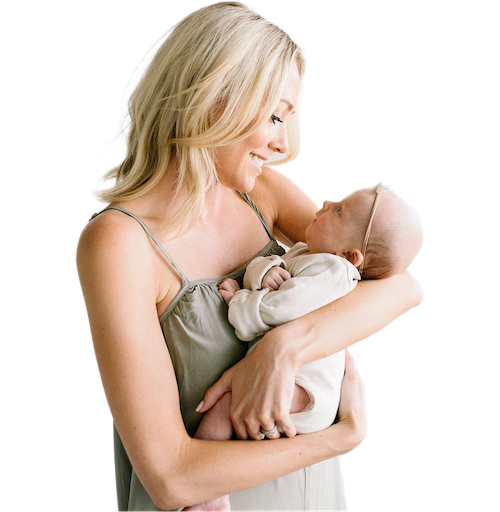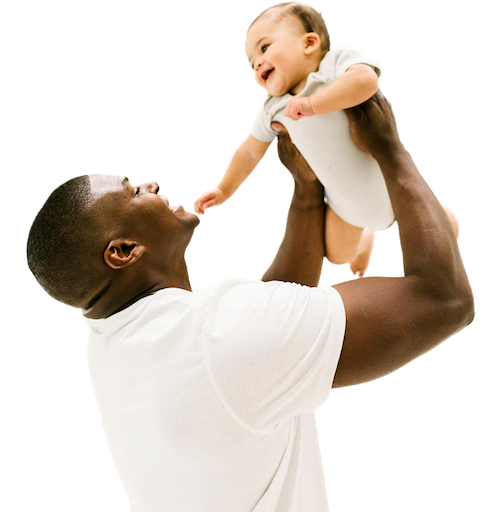Is sleep suddenly feeling a little tricky around 12 months? Wondering why? Welcome to the 12 month sleep regression. I want to help!

The 5–24 Month Collection
stars ( reviews)
You don’t need to struggle alone. If sleep is suddenly hard or has always been hard for your 12 month old, my 5-24 Month Collection is here for you. I’ll teach you a customizable, step-by-step plan to set your little one up for sleep success while remaining emotionally connected the whole time.
Learn MoreWhat is a sleep regression? anchor
Perhaps you’ve noticed that your little one is suddenly waking more during the night, taking shorter naps, or resisting sleep altogether. These sudden changes in your baby’s sleep could be a sleep regression. Sleep regressions are a sign of developmental progressions. What does that mean? Well, when a baby’s brain is focusing on physical, mental, social, and emotional growth, sleep can be impacted.
Are sleep regressions based in science?anchor
When a baby’s brain is busy learning new things or developing, sleep can take a back seat.(3, 9) Also, as babies grow, their sleep needs change.(6,7,8) This means a baby may begin to struggle with more night wakings, with nap refusals, and with falling asleep. When sleep is interrupted this way, it can feel like everything is moving backwards, hence the term “sleep regression.”
However, sleep isn’t actually going backwards or permanently “regressing.” Sleep skills don’t just disappear at magical ages. When I talk about common sleep regression ages, I’m talking about ages when babies and toddlers often experience periods of development (physical, cognitive, social) or commonly have a change in sleep needs (Think fewer naps, more awake time, etc..). But truly, all babies develop at their own pace, meaning sleep could be interrupted because of new skills, cognitive progressions, or physical shifts at any age.
What causes the 12 month sleep regression?anchor
Your baby is busy learning so much at this age! They are likely becoming more mobile, following simple commands (“Give it to Daddy!”) and saying a few words. They are increasingly aware of the world around them, developing a deeper understanding of language and a higher interest in play(1). Your baby might begin to think: "This world is so exciting, why would I want to sleep?"
Expectations can also change around this age. As you celebrate your baby turning 1, you may find yourself thinking of your little one as a young toddler rather than an older baby. This can come with big transitions: some graduate to a different room at daycare, others switch from bottles to cups, some families choose to stop nursing, and many parents begin to wonder when it’s time to move to one nap. (Hint: It’s probably not time yet).
Any one of these developments or adjustments will be a big change for your little one and has the potential to lead to new sleep struggles. This disruption in sleep is referred to as the 12 month sleep regression.
My 1 year old won’t sleep all of a sudden. Could this be the 12 month regression? anchor
It could be! But first, let’s be sure to rule out any physical concerns like illness or teething. If your baby is not experiencing any physical discomfort, consider any recent transitions or developmental strides they may have made. Are they starting to follow a few simple commands? Maybe they just took their first steps? Were they moved to a new room at daycare?
Whether your baby is 12 months, 14 months, even 11 months, these kinds of progressions have the potential to impact sleep. Wondering how you can help your little one get back on track? See my tips below.
Expert Tip: Around 11-13 months, some babies show signs of being ready to transition to one nap, but most are not ready yet. If your baby is taking shorter naps or taking longer to fall asleep, consider adding 15-20 minutes to each wake window before attempting the 2 to 1 nap transition. If we transition to one nap too early, we may see other sleep issues, like night wakings or early morning wakings.
Can you sleep train during the 12 month regression?anchor
Yes, you can sleep train during the 12 month regression. You will want to be sure your baby is healthy before beginning any sleep training. I always recommend checking with your baby’s pediatrician if you have any concerns about your baby’s health.
The consistency provided through sleep training allows your little one to get much needed sleep to support healthy development(2). If you’re considering sleep training and not sure where to start, I have a class for you. My 5–24 Month Collection is a fully-customizable approach to sleep training. I’ll guide you through a step-by-step plan to remain emotionally connected to your baby while helping them achieve 10-12 hour nights and solid naps. I’ll also give you practical guidance for regressions, transitions, and other bumps along the way.
What are some signs of the one year sleep regression? anchor
Every baby develops at their own pace, so while some babies may see this regression at 11-12 months, others may experience a 14 or even 15 month regression.
Here are some signs of the 1 year sleep regression. Your little one:
has become increasingly fussy and will only sleep if being held.
is suddenly taking shorter naps or refusing to nap.
is now waking multiple times per night when middle-of-the-night wakings were not an issue before.
is experiencing separation anxiety and screams when you begin to leave the room when it’s time for naps or bedtime.
cries or throws tantrums during the bedtime routine.
is taking longer than 20 minutes to fall asleep for naps and/or at bedtime.
experiences a change in sleep that feels “off” and you’re not sure why.
How long does the 12 month sleep regression last? anchor
Good news! If you remain consistent with your healthy sleep habits or follow a plan to get sleep on track, this regression typically lasts only 1-2 weeks. On the other hand, if we introduce new habits or throw our healthy routines out the window, we can see a sleep regression turn into a long-term struggle. Check out my tips to help this sleep regression pass quickly.
Is there a 15 month sleep regression?anchor
It’s possible! Between 12-15 months, babies experience huge strides in all aspects of development and are becoming more independent every day! Some things you may notice around 15 months:
A significant increase in mobility ranging from crawling to practically running.
A peak in separation anxiety.
Expressing a strong preference for one parent over the other.
Showing interest in a lovey for comfort.
If you’re wondering if your 15 month old is going through a regression or need tips for how to help during the 15 month regression, head over to my blog: 14-15 Month Regression.
How can I help my baby during the 12 month sleep regression?anchor
Here are a few ways that you can help:
1. Be intentional about practicing new physical skills.anchor
The developmental progression that comes with learning new skills can lead to sleep disruptions(3). The more you practice these new skills during the day, the less exciting those activities seem when it’s time to sleep. Encourage lots of floor-time so your little one can crawl, pull up, walk along furniture, and just play.
2. Pay attention to changing sleep needs.anchor
Most are not quite ready to drop down to one nap right at 12 months, but many will appear to show signs it's time for that transition. Maybe your little one is taking longer than 20 minutes to fall asleep or struggling with short naps. If you see this, I still recommend maintaining two naps for as long as possible. How do you do that? Consider adding 15-20 minutes to each wake window to make sure your little one is getting the active awake time needed to get restorative naps and night sleep. Most 12 month olds need 3.5-4 hours of awake time before bedtime
Daycare parents: I understand that you may not have much control over when the 2 to 1 nap transition occurs. Some daycares transition as early as 11-12 months. This is very early for many babies, but trust that your daycare can handle it. If keeping your baby on 2 naps when at home works best, do it! Allowing 2 naps temporarily may be the best decision for your little one. If you have more questions, check out this blog on Daycare and Baby Sleep.
3. Plan for active awake time.anchor
Sometimes sleep becomes a struggle because babies simply aren't tired enough. It can be tempting to extend wake windows as a first step, but before doing that, consider whether your little one's wake windows are sufficiently stimulating. Allow time for moving that little body, engaging in independent play, and exploring the world around them.
Why is this so important for sleep? Just like being physically and mentally active helps you and I sleep better, the same is true for our little ones.
4. Understand how your baby thinks.anchor
Object permanence is developing further which can often lead to increased separation anxiety. Protesting sleep is often a sign of 1 year old separation anxiety at night or nap time(4). Regularly practicing and playing games like Peek-a-Boo or Hide-and-Seek can help your baby continue to explore this concept and ease some of the signs of separation anxiety.
5. Be mindful of big transitions.anchor
Some transitions are necessary or inevitable at this age. We can’t control those! But with transitions that are in our control, pay attention to timing, as consistency and routine are vital for getting through any regression.
What does that look like? Perhaps your baby is taking their first steps, so we choose to wait a few more weeks before trying to transition to a sippy cup. Maybe your little one is adjusting to a new room at daycare, so we decide not to wean the pacifier for now.
6. Stay consistent.anchor
Don’t start new habits or patterns that you don’t want to maintain. I know this can be easier said than done when your baby is protesting sleep. But truly, keeping your routines in place is so helpful for sleep, especially the bedtime routine. When a bedtime routine is done consistently, children sleep better(5). Remember, this regression may be tough for several days, but the more consistent you are, the more quickly it will pass.
7. Have a plan.anchor
If your nights or naps are rough beyond just a few days, I have a class for you that will get sleep back on track even during the regression. My 5-24 Month Collection is a customizable and attachment-driven approach that will meet your baby where they are developmentally. I’ll teach you a step-by-step plan to restful nights and solid naps so your whole family can thriv
References
9 Sources
Healthy Children, American Academy of Pediatrics. (2009). Developmental Milestones: 12 Months.
Spruyt K. et al. (2007). Relationship between sleep/wake patterns, temperament and overall development in term infants over the first year of life.
Scher A. & Cohen D. (2015) Sleep as a mirror of developmental transitions in infancy: the case of crawling.
A.D.A.M. Medical Encyclopedia. MedlinePlus. (2022). Separation anxiety in children.
Mindell J. et al. (2015) Bedtime routines for young children: a dose-dependent association with sleep outcomes.
Mindell J. et al. (2016). Development of infant and toddler sleep patterns: real-world data from a mobile application.
Paruthi, S. et al. (2016). Recommended Amount of Sleep for Pediatric Populations: A Consensus Statement of the American Academy of Sleep Medicine.
Wielek, T. et al. (2019). On the development of sleep states in the first weeks of life.
Healthy Children, American Academy of Pediatrics. (2022). Separation anxiety and sleeping.
Keep in mind that the information and content on this blog is for informational purposes and should not be considered medical advice. If you have questions about your child, please reach out to your doctor.








